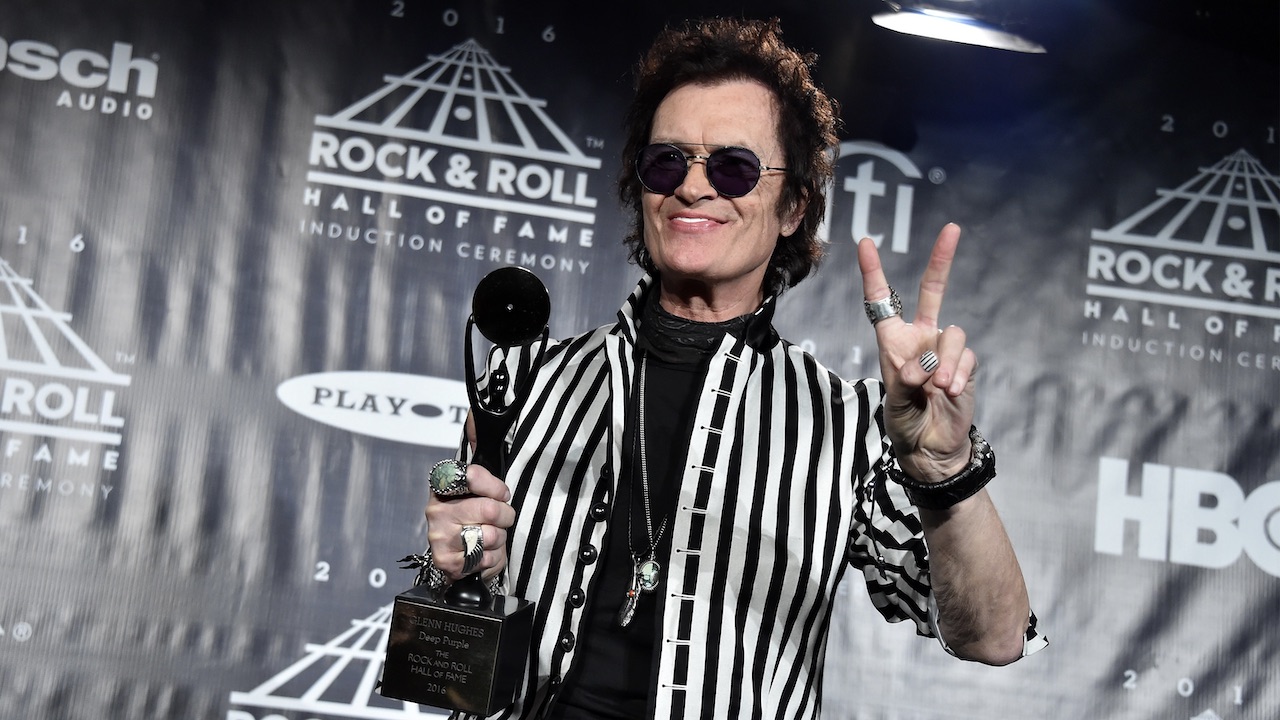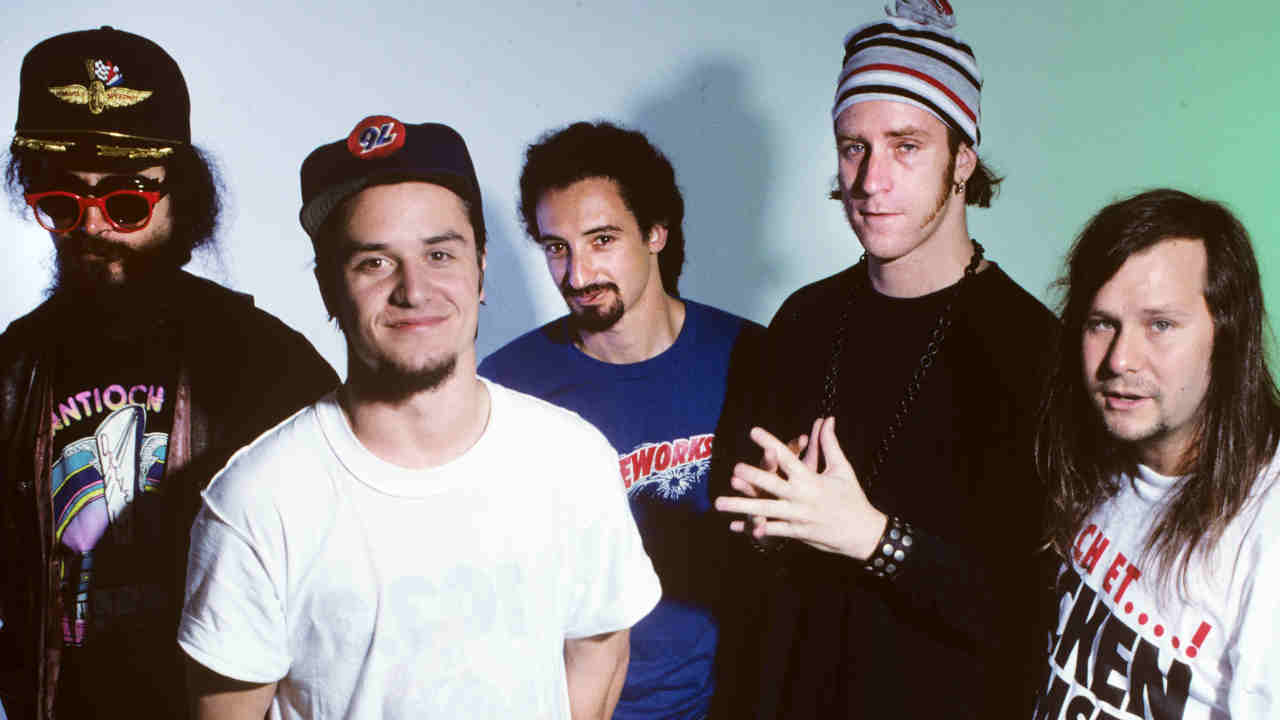"I’d be thinking, Behind this cocaine, either someone is dead, or someone is going to be killed": That time a Los Angeles drug dealer asked former Deep Purple vocalist/bassist Glenn Hughes to look after five kilos of coke
"You’d trip over cocaine in my house there was so much of it”: for Glenn Hughes, the late '80s were a dark time

By his own admission, Glenn Hughes has "lived the lives of 10 men", and has the mind-boggling stories to back this up.
"I’m so fortunate not to have died,” the Voice Of Rock™ once told this writer. "I’ve overdosed, been pistol-whipped, shot at, stabbed, run over in a car… and I’m still here to tell the tale."
The 1980s were a particularly challenging time for the former Trapeze/Deep Purple man, as mounting drug addiction contributed to the collapse of a number of hugely promising projects for the singer, including Hughes/Thrall, a collaboration with Californian guitarist Pat Thrall, G-Force, a shortlived band with Gary Moore, and an ill-fated stint with Tony Iommi in Black Sabbath, following the release of the under-rated Seventh Star album. By the end of the decade he was holed up in Los Angeles with five kilos of cocaine, dumped on him by a friendly local dealer after a deal went disastrously wrong.
“People would be coming to my house for six months afterwards just to smoke crack,” Hughes noted in his 2011 autobiography. “They’d bring piles of it, knowing that I’d be a great host to them. I was now becoming the guy in the robe at the end of [1997 film] Boogie Nights… you’d trip over cocaine in my house there was so much of it.”
"Let’s just say that in LA… I never made my drug use public, but some people knew me as a guy to hang out with," Hughes told me in 2019. "I ended up hanging out with some heavy people, people who would do horrid things to others, and guns were involved."
"I didn’t ask people for cocaine, but they would knock on my door in the middle of the night and say, ‘Can I leave this stuff here for a few days?’ I’d be thinking, Behind this cocaine, either someone is dead, or someone is going to be killed, because something bad has happened. I knew that, even though I was out of my mind. And so I never touched any of that stuff although it was in my presence, because I knew that if I touched it, I would be the next one dead. My girlfriend at the time actually had a stroke on coke, and she was dying, and the cops came… I said, There’s a girl here about to die. I got on my knees with her, and I prayed and prayed. And she came around. The ’80s were a difficult period for me."
Hughes confessed that, at the height of his addiction , he was "fearful of death".
"I was also a man who knew that the next hit of crack could be my last one," admitted. "I was having so many bad, paranoid moments where I was thinking, This is close to the end… That incident with my girl having the stroke stopped me for a little while, but I went back to it. By the end of the ’80s going into the ’90s I was thinking, It’s time for me to seek help."
"And then [electronic duo] The KLF came along, and asked me to sing on their song America: What Time Is Love. I knew it would be a hit song, and I remember speaking to my girlfriend and said, I gotta get treatment here, to be ready for this. So I went home in December 1991 and I went to the Betty Ford clinic for an evaluation on Glenn Hughes. I made that first step to get help. But unfortunately it was Christmas Day, and they didn’t have any room for me, because it was chock-a-block with people getting sober. So I went home for Christmas, bought a big bag of coke and I had a heart attack on Boxing Day. I remember looking in the mirror and I thought, That’s not me. I said to my girlfriend, Don’t let me sleep. She called an ambulance and I went to hospital, otherwise I’d have died."
Happily, in 1997, Glenn Hughes got clean, for good.
"I have no inner turmoil in my life now," he told me in 2019. "I have been in so many awkward situations in my life, but underneath there’s my inner child, a quite normal kid, raised in the Black Country, an only child born to a working class family, born to be a rock ’n’ roll singer."
Sign up below to get the latest from Classic Rock, plus exclusive special offers, direct to your inbox!

A music writer since 1993, formerly Editor of Kerrang! and Planet Rock magazine (RIP), Paul Brannigan is a Contributing Editor to Louder. Having previously written books on Lemmy, Dave Grohl (the Sunday Times best-seller This Is A Call) and Metallica (Birth School Metallica Death, co-authored with Ian Winwood), his Eddie Van Halen biography (Eruption in the UK, Unchained in the US) emerged in 2021. He has written for Rolling Stone, Mojo and Q, hung out with Fugazi at Dischord House, flown on Ozzy Osbourne's private jet, played Angus Young's Gibson SG, and interviewed everyone from Aerosmith and Beastie Boys to Young Gods and ZZ Top. Born in the North of Ireland, Brannigan lives in North London and supports The Arsenal.
